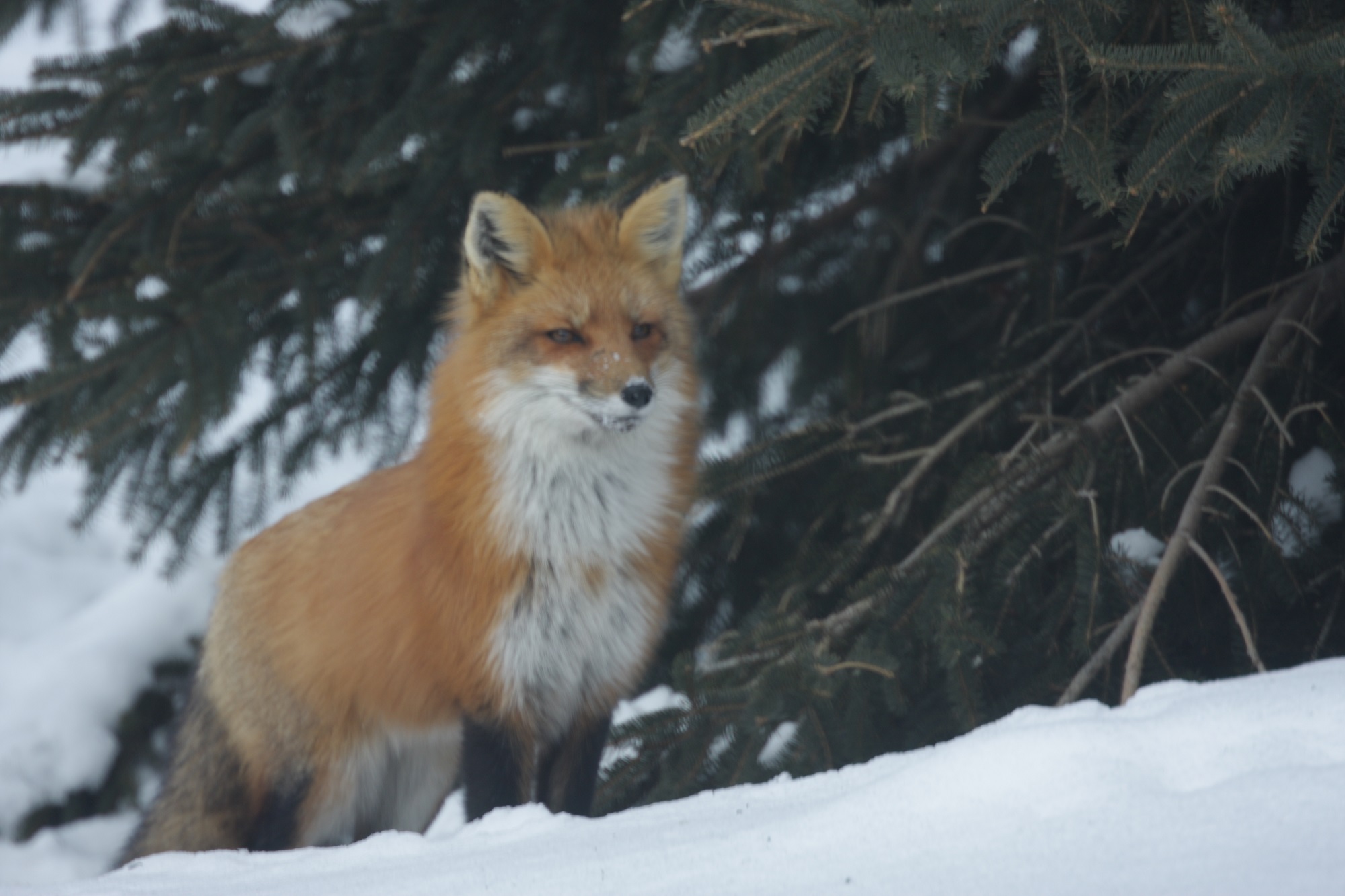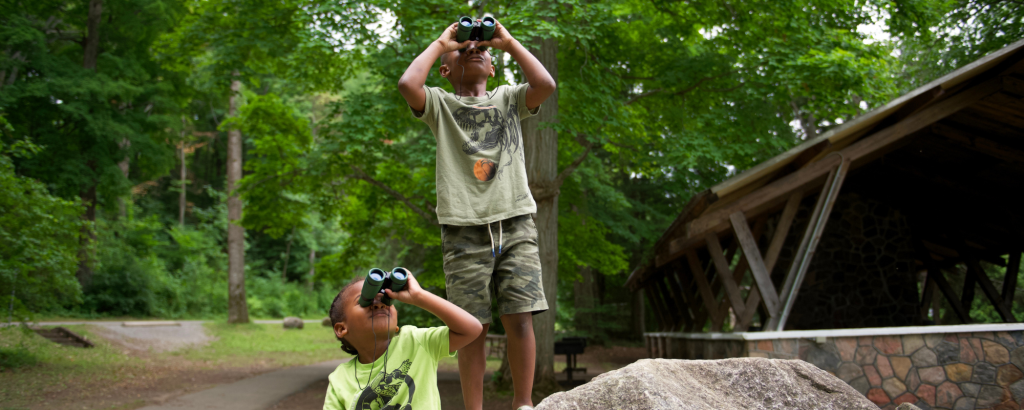
It’s essential to instill a love – and respect – of the outdoors in our children. It’s something we can’t start too early.
Recent research shows that if you give kids (aged five to ten) an immersive experience in nature, it will lead to a lifelong love for the environment and a sense of stewardship for the earth.
You’ll also likely produce more creative thinkers!
Former Park Biologist Alison Lake offers these tips on how to raise environmentally conscious kids in an increasingly urban and regulated world:
~
Spend some unstructured time every day with your kids by taking them for a 30-minute walk around your neighbourhood
Not only is walking good exercise for the whole family, it’s free, carbon-neutral and a valuable lifelong habit. It’s also a great way for your children to connect with you and the natural world around them.
Even in the most urban of environments, there’s lots of nature to see and hear!
~
Show your budding environmentalists how to track changes in nature, season by season
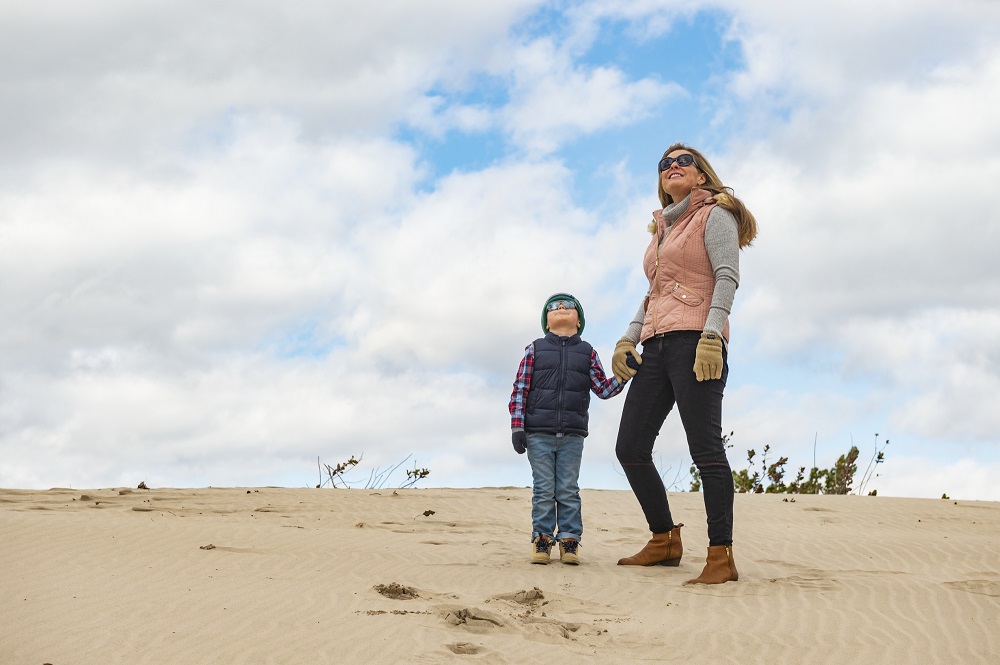
In spring, for example, get them to look for the first robin.
Or the first worm on the sidewalk.
Or the first bud on the apple tree you walk by regularly.
In winter, have them note when the first snowfall occurs, the first animal tracks appear in the snow, the first night the temperature goes below zero.
Encourage them to keep a diary or calendar so they can compare what happens in the seasons, year by year.
~
Kick it up a notch by taking them to your nearest park
Start with day trips and progress to weekend camping as they get older.
Teach your children how to observe what’s going on in the park quietly, and how to “fit in, not shape” their surroundings by leaving the flowers, animals, grasses – and even the driftwood – exactly as you found it.
(Driftwood provides an important habitat for species such as Eastern Hog-nosed Snakes and American Toads.)
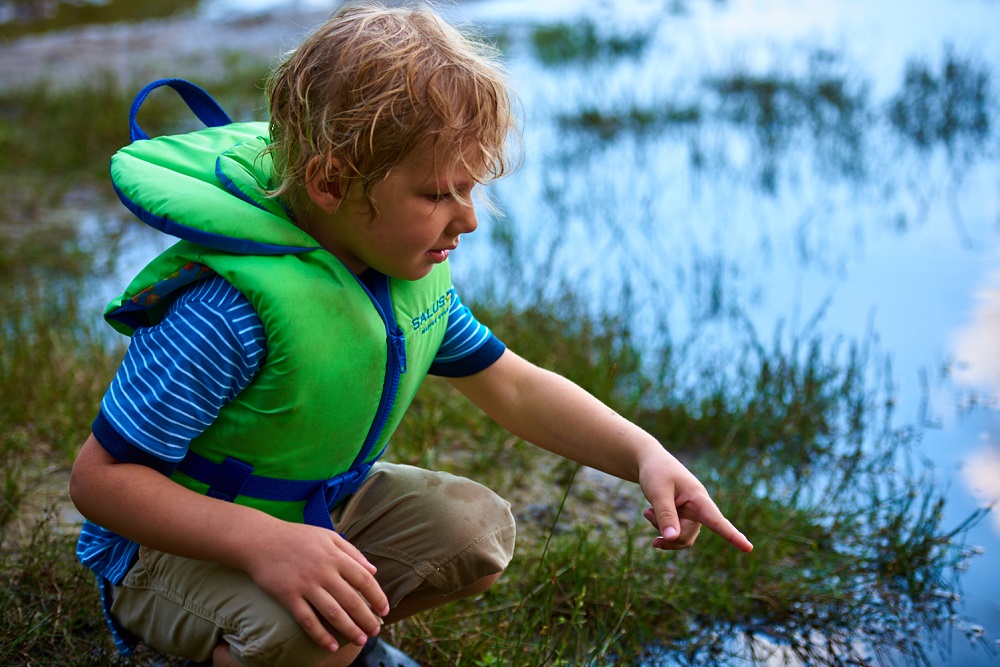
Encourage them to take photos of animals, birds, reptiles, and plants that capture their interest, and discuss what the animal was doing when photographed and why.
~
Listen to your kids
Find out what they’re interested in, and encourage and support them. You never know, you may have a future botanist, ornithologist, or even herpetologist on your hands!
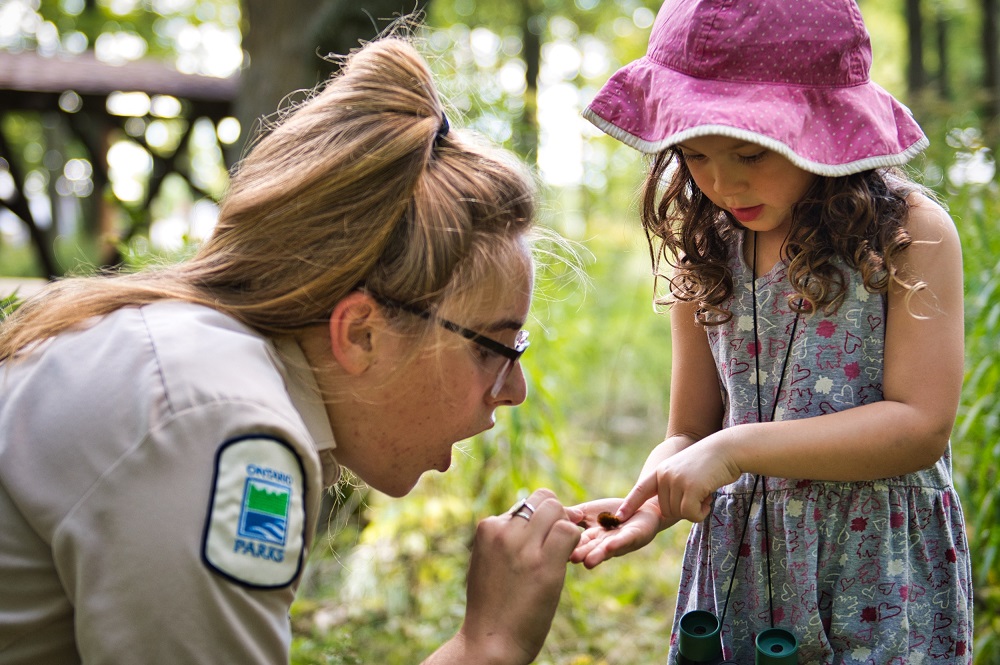
At the very least, you’ll give your child the precious gift of a lifelong love of nature.
Check out our Discovery programs with park naturalists and make a point of taking your children to events that will further their interests.
You just might develop a new interest or skill yourself!
~


